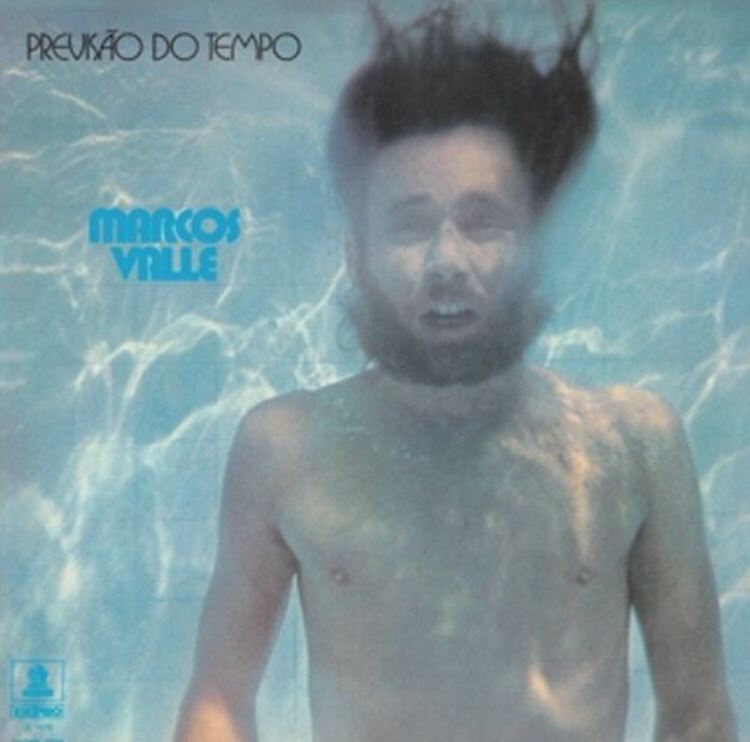An absolute corker!!!


This album, from 1973, is so good that mere human verbiage simply cannot do it justice. It’s the kind of wonderfully obscure gem you may once have overlooked, years ago, flicking through vinyl bins somewhere, not knowing that your fingers had brushed their soul’s salvation, just as I did many times with Valle’s album Garra, as far back as the ‘80s! (I could have had it for £4, on vinyl, from Reckless in Islington!!)
It must be 10-15 years ago – maybe more?- when I bought this album (and Vento Sul) from Dustygroove.com, in Chicago. After customs and UPS had finished with me I’d paid £70 for the two albums. £35 each!!! So don’t baulk at the prices you see these for nowadays. This album is worth every penny.
When I first posted an earlier version of this review, on Amazon UK’s website, this was the only ‘70s Valle on offer; just this one lone import, from the batch put out in Japan. A series which also includes remastered reissues of Garra, two eponymously titled albums (from ’70 & ’74), Mustang Cor de Sangue, Viola Enluarda and, possibly also a few others.
The Music on Provisao do Tempo is a mix of jazz, bossa, funk and easy/soundtrack textures. The two versions of Nao Tem Nada Nao (vocal then instrumental) are super mellow brazillian space funk, with mad analog synth noodling to boot!
Tira Mao has a similar feel in the chorus, but the verses are more ambient, with lovely arpeggiated chords on guitar. Mentira is also a funky nugget, here you get brass stabs too – tasty cheese!
The most downbeat and moody track is Samba Fatal (apt really), it’s brooding and poetic and utterly brilliant. It’s the only song that sounds like he wasn’t grinning like a Brazilian buddha as he recorded the vocals: the album is dripping with honeyed good vibes.
The title track is a fantastic instrumental – traces of the Italian and French mondo-pop-sountrack lurk herein. The strings rise and fall chromatically, in a Bond-ish manner. It should be observed at this point that the arrangements are simply superb – both rich and minimal at the same time. Every element placed perfectly. The organ stabs on the space-funk tunes mentioned earler are typical of the pared down approach.
De Repente, Moca Flor is perhaps the smoothest piece – only the bubble-machine synth near the close to hint at the more baroque & freaked-out feel of the music Valle had laid down the previous year, on the fabulous Vento Sul album.
Mais Do Que Valsa is a great slowly swinging 3/4 tune (valsa = waltz, obviously). The subtlety of inflection in the singing is a real treat. Fans of Fagen & Mike McDonald take note! Tu-Ba-La-Quieba is a slowly funky toon – beautiful falsetto vocals – Marcos is in fine voice throughout.
The band are – so I’ve read and been told – the guys who became Azimuth, and they play superbly throughout, understatement being the key theme. Every song is utterly magnificent. In an era where so much music is bland pap sold like tastless sliced white bread, this album, like Shuggie Otis’ Inspiration Information is a little piece of heaven on earth.
Interestingly, as I thumbed through the booklet (only Japanese and Brazilian Portugese I’m afraid), I noticed that they namechecked Stereolab, The High Llamas, Shuggie and Tortoise – all stuff I also dig – cosmick! Nem Palata, Nem Gravata is a little like a more sophisticated version of early Mo’ Wax era Money Mark.
I came to this stuff from Valle’s smoother Bossa era stuff, such as Samba 68, which is also fabulous. And he’s still going strong! We love you, Marcos. What inspires someone to such great deeds? I don’t know, but I’m very grateful. As James Brown once said: “If you got any kinda soul, you gotta feel it!”
Since originally posting this review, of the Jap’ reissues, the lovely people at Light In The Attic record label have had the decency and good taste to reissue several of Valle’s best albums from the early 1970s. At present they are: Marcos Valle (1970), also sometimes known as Quarentao Simpatico), Garra, Vento Sul, and this one, Provisao Do Tempo (1973). All of which are now available to us music lovers at far more reasonable prices than the only other former legit’ CD source to date, the aforementioned Jap’ imports.
